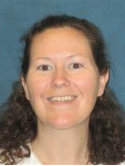Analysis of diurnal variation in serum testosterone levels in men with symptoms of testosterone deficiency Journal Article
| Authors: | Novaes, L. F.; Flores, J. M.; Benfante, N.; Schofield, E.; Katz, D. J.; Nelson, C. J.; Mulhall, J. P. |
| Article Title: | Analysis of diurnal variation in serum testosterone levels in men with symptoms of testosterone deficiency |
| Abstract: | Background: Testosterone (T) plays a crucial role in various physiological functions in men, and understanding the variations in T levels during the day is essential for diagnosing and treating testosterone deficiency (TD). Aim: We sought to evaluate the reduction in serum total T (TT) levels throughout the day in men with symptoms of testosterone deficiency and to determine the variables having an impact on the extent of this decline. Methods: The study population consisted of a group of men who within 3 months of each other had all undergone both early morning and afternoon TT level measurements. We did not include patients with a history of a prior orchiectomy, testosterone levels below 100 ng/dL or above 1000 ng/dL, a history of androgen deprivation therapy, or patients on T therapy. Statistical analyses were conducted using descriptive statistics, t-tests, chi-square tests, and correlation calculations. Liquid chromatography-tandem mass spectrometry was used to measure TT, and a change in TT levels greater than 100 ng/dL was considered significant. Using multivariable and univariable analysis, we attempted to define predictors of a decrease in afternoon TT levels. Outcomes: The majority of men showed no significant difference in T levels between morning and afternoon. Results: In total, 506 men with a median age of 65 years were analyzed. The most common comorbidities were hypertension and hyperlipidemia. Levels of TT were measured in the morning and afternoon, and no significant differences in mean T levels based on the time of the test were found. Age was not significantly associated with T levels. Clinical Implications: There was a weak negative correlation between age and the difference between morning and afternoon T levels, with younger men showing more significant variations in T levels. The most considerable differences in T levels were observed in men younger than 30 years. There were no predictors of the magnitude of the T decrease in the afternoon. Strengths and Limitations: Strengths of the study include the number of subjects and the use of liquid chromatography-tandem mass spectrometry for T measurement. Limitations include failure to measure morning and afternoon T levels on the same day, the retrospective nature of the study, and a smaller sample size of patients younger than 30 years. Conclusion: In this study we found no strong link between age and daily T fluctuation, but we observed a decrease in the magnitude of variation with aging. The group experiencing the most significant decline in daily T had higher morning and consistently normal afternoon T levels. © 2024 The Author(s). Published by Oxford University Press on behalf of The International Society of Sexual Medicine. All rights reserved. |
| Keywords: | adult; controlled study; aged; middle aged; retrospective studies; cigarette smoking; hypertension; sensitivity and specificity; mass spectrometry; prostate specific antigen; retrospective study; physiology; blood; comorbidity; tandem mass spectrometry; immunoassay; orchiectomy; testosterone blood level; hypogonadism; androgen deprivation therapy; coronary artery disease; testosterone; hyperlipidemia; androgen deficiency; sample size; diagnostic test accuracy study; circadian rhythm; liquid chromatography-mass spectrometry; humans; human; male; article; testosterone deficiency; diurnal variation; patient history of orchiectomy; sleep apnea syndromes |
| Journal Title: | Journal of Sexual Medicine |
| Volume: | 21 |
| Issue: | 5 |
| ISSN: | 1743-6095 |
| Publisher: | Elsevier Inc. |
| Date Published: | 2024-05-01 |
| Start Page: | 408 |
| End Page: | 413 |
| Language: | English |
| DOI: | 10.1093/jsxmed/qdae026 |
| PUBMED: | 38481019 |
| PROVIDER: | scopus |
| PMCID: | PMC12371534 |
| DOI/URL: | |
| Notes: | The MSK Cancer Center Support Grant (P30 CA008748) is acknowledged in PubMed and PDF -- Source: Scopus |
Altmetric
Citation Impact
BMJ Impact Analytics
MSK Authors
Related MSK Work









